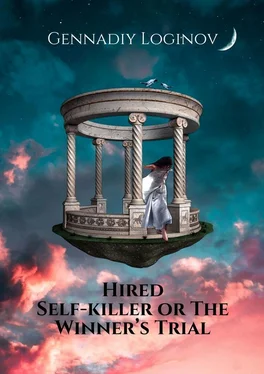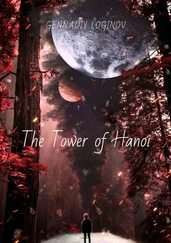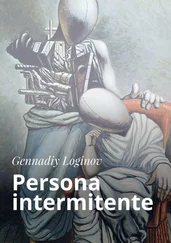“We’ll stop here for a while.” Lucky’s words sounded more like an order rather than a suggestion.
“If you say so,” the organ-grinder agreed and looked around with interest. From time to time, some people ran through the thickets. They wore homespun tailcoats, resembling the pelts of primitive people, and were armed with mace-shaped trumpets, spear-shaped flutes, bow-like harps and violins with feathered bows.
“And who are they?” cautiously inquired Lucky.
“Savage musicians,” his companion told him, watching the scene with interest. “They are hunting and running the beast. Everyone is waiting for the chief’s command… And here he is!”
From the depths of the forest thicket, with a heavy rumble, followed by a monstrous cacophony, a furious piano jumped out. It was out of tune, overgrown with moss, and behind it, baying it, ran out a formidable leader, accompanied by tall bassists. He had a conducting baton hung with shamanic rattles in one hand, and in the other – a musical score written on the skin with primitive artwork in the spirit of cave paintings. According to the sign of the conductor’s baton – the shamans hit the tambourines. The circle narrowed; the hunters covered the doors, cutting off the escape routes, and the hunted piano threateningly demonstrated its black-and-white-toothed maw, flapping the lid and wiggled the keys. Having played a major chord, it rushed towards the pursuers, but the chief managed to make a wave – and the warriors attacked the mighty prey on all sides without sparing themselves. Fighting with the despair of the doomed, the fierce beast fretted, fumed, spun, butted and bit, snapping with expressionist motifs, while savage musicians fell one by one, pinned down by the piano, but still struggled to capture it alive with their last strength.
“Brute force alone may not be enough to pacify and tame a furious piano,” the organ-grinder shared with passion and excitement. “To achieve his recognition and respect – you need to play well on it.”
Lucky could no longer remain an observer in such a battle and rushed to the attack. He wasn’t afraid of fights, because, for obvious reasons, when he participated in military actions or duels, or in a pub brawl, he invariably walked away unscathed, since neither a bullet, knife or broken bottle, as a rule, could harm him; and when he was occasionally hurt, it was always just a scratch, from which he healed soon.
Having made his way through the field, which was strewn with bodies and broken weapons, he barely had time to shout “Hold the jaw!” to the warriors before he attacked the beast. He hadn’t played the piano since long ago when he was a child, but there had to be something left in his fingers’ memory. He could only hope that the enemy wouldn’t bite them with the lid. Just like last time…
The hunters struggled to restrain the monster, which wobbled and shuffled with all its might, trying to shake them off and shut its maw whenever possible, but these people were not the timid sort.
And the battle began. Fingers ran along the resistant keys like a playing machine and held chord after chord, trying to go everywhere, from edge to edge. At any other time and in other circumstances, the overture Battle with the Piano might have seemed very entertaining to him, but now it wasn’t amusing at all. Putting the barrel organ on the keys with a loud chord, Joe Ker stood shoulder to shoulder with Lucky, preventing the creature from slamming its maw, and soon they were playing the piano together, four-handed…
…Celebrating the victory, the warriors honoured the heroes, while still being a little wary and keeping an eye on the pacified piano, which was now grazing peacefully, nibbling the note sheets. Bad luck had come to an end, and the tribe of savage musicians was incredibly glad for the unexpected addition to their ranks.
“He asks how did we do it,” the bearded man laughed, interpreting the speech of the chief, who had recently announced publicly, that he now named Lucky his son and heir, and had hugged the tamer in a fatherly way.
“I don’t know,” he said with a weary smile and, playing a minor chord on the tamed piano, laughed cheerfully. “Maybe I was lucky…”
He spent most of his life (which was yet very short), without departing a considerable distance from his native docks. The son of a ship engineer and a Norwegian shipyard, he only set sail to return to the port soon with a fresh fish cargo aboard. There were still transportations of people or freightage sometimes, but they didn’t happen very often. His regular everyday life proceeded aside from any surprises, but this was not what the young fishing vessel would really want.
Resting after a regular voyage, he quietly swayed at the pier and had vivid dreams about his distant mighty ancestors, warlike dragon ships, whose boards were niftily decorated with dark-red shields. They swiftly cut through the waves, carrying away the distant ancestors of his sailors and captain. The desired image was appealing and beckoning, but the horns of large ships, the cries of seagulls or human chatter destroyed this shaky fantasy over and over again.
The port was always throbbing with life, but even amid all this bustle, the Norwegian ship felt all the sadness of solitude and acute loneliness. Yes, of course, there were a lot of other vessels and other objects around, but he had nothing to do with the vast majority of them. They were different. Soulless. Dead. No more than lifeless shells, driven by the crew.
Once, when the Reliable (as captain Sigurdsson had named him) was still a greenhorn who sailed from the maternal womb of the shipyard for the first time, he believed that all other vessels could think and realize themselves as he did. But soon he experienced dismay mixed with frustration. In response to any attempts to communicate, ships only silently swayed on the waves, indifferent and distant, like stars in the sky. Now he perceived them with cold disinterest and a touch of irritation.
There were some pleasant exceptions, of course. For example, the good old lighthouse, snow-white colossus, who towered above the fuss of the port world. Over the years, a lot of keepers had been replacing each other within his walls, leaving the particles of their souls to this high sentinel. And the lighthouse could speak about any keeper for hours, as if they were his own children, recalling the happy moments they had spent together. Following his guiding lights, the Reliable learned something new not just once, while the lighthouse winked at him conspiratorially and continued to tell the old man’s tales to the young ship.
The city museum was the abode of the oldest ship in these places, who even managed to catch the Age of Discovery. Of course, he wasn’t the same proud vessel as before: he didn’t break apart into pieces only through the efforts of people and continually indulged in nostalgia for the times when he was young and beautiful. Then he raced to the horizon, breathing more wind into his mighty sails, and the orderly rows of his cannons and culverins glinted in the sun. The Rapid spoke with a quaint Spanish accent, accompanied by the planks creaking, and despite his venerable age he grudgingly admitted that he regretted only one thing – that he would never lower his stern into the water again, not to mention the ocean crossing.
Sometimes, a light seaplane flew over the port. He was of a superior kind (not in terms of flight characteristics, but in terms of his character and behaviour) and liked caustically teasing everyone unlucky enough to meet him. The ships had heard a lot of sarcastic regrets about the fact that the wondrous world of the air elements was closed to them and (alas and alack!) they unlikely would have a chance to admire a bird’s-eye view of the city or their own harbour at least. At the same time, a local helicopter and a pair of passenger planes must listen to his reproaching remarks that they would never understand what drifting on the sea surface felt like. And he also called names to the poor city tram, addressing him as “a shore loafer who goes round in circles.”
Читать дальше












